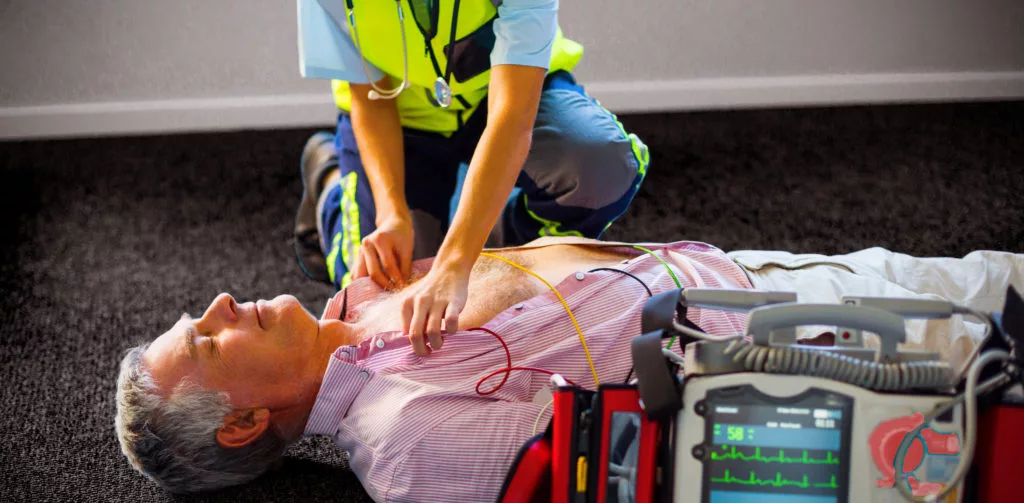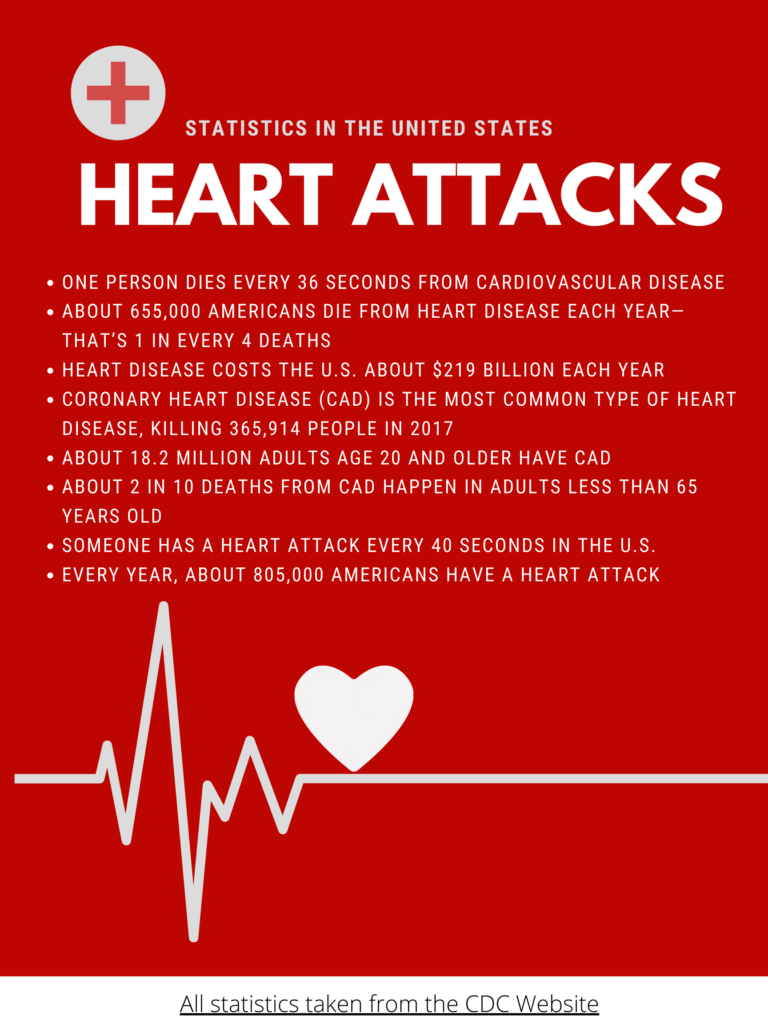Medical professionals should be trained to distinguish the difference between a heart attack and other less serious illnesses, but sometimes health care providers fail to exercise due diligence and investigate the cause of a patient’s chest pain properly. This can lead to a failure to diagnose a heart attack, and the consequences of a misdiagnosis can be devastating – even deadly.
Georgia Medical Malpractice Lawyers
The experienced medical malpractice attorneys at Blasingame, Burch, Garrard & Ashley, P.C. hold medical professionals across Georgia responsible when they fail to diagnose a heart attack and that failure leads to serious injury or death.
A History of Results
We have an established track record of bringing our clients results they expect and deserve. We have recovered millions of dollars for our clients, and we know how to fight the insurance companies and medical facilities.
What is a Heart Attack?
A heart attack occurs when the blood flow to a portion of the heart muscle becomes blocked. This can happen when there is a buildup of substances such as plaque, fat, or cholesterol in the arteries. Sometimes plaque can rupture and form a clot that blocks the blood flow to a portion of the heart muscle, which causes damage or even destroys part of the heart muscle. A heart attack, which is also called a myocardial infarction, can be fatal.

Symptoms of a Heart Attack
Symptoms of a heart attack may include, but are not limited to:
- Chest pain
- Tightness in the chest area
- An achy feeling in the arms, neck, jaw, or back
- Cold sweats
- Dizziness
- Shortness of breath
- Nausea
- Lethargy
The symptoms of a heart attack may vary from person to person. It is important to take all chest pain seriously and consult with physician if you experience any of the above symptoms. For severe pain or the onset of more than one of the above symptoms call 911 or have someone drive you to the nearest emergency room.
Heart Attack Treatment
How a patient is treated is dependent on the severity of the heart attack, the age and health of the patient, and multiple other factors. Doctors, nurses, and other healthcare staff often use an angiogram to examine blood flow to the heart and reveal how well their heart is pumping. Other treatments may include:
- Cardiac catheterization
- The use of blood thinners or clot-dissolving drugs
- PCI with stenting (a stent is used to open blood vessels in the heart)
- Coronary artery bypass grafting, or CABG (bypass the blocked portion of the coronary artery with a piece of a healthy blood vessel from elsewhere in the body)
Am I at Risk of a Heart Attack?
Certain factors such as age, underlying health conditions, and obesity may make you more at risk of experiencing a heart attack. Some of these risks include the following:
- Obesity
- Age
- High blood pressure
- High cholesterol or triglycerides
- Tobacco use
- Stress
- Diabetes
- Drug use
- Allergic reactions
- Certain medications
- Autoimmune disease or other underlying conditions
- A lack of exercise
MALPRACTICE ATTORNEYS IN GEORGIA
- What is Medical Malpractice Under Georgia Law?
- Is There Anything Else I Need to Prove?
- How Can I Prove a Medical Malpractice Claim?
- What are Some Common Examples of Medical Malpractice?
- Will a Medical Malpractice Case Take a Long Time?
- Can an Athens, GA Medical Malpractice Lawyer Help?
- Schedule a Consultation with Athens, GA Medical Malpractice Attorneys
Hospital Liability
You may be wondering what hospitals are liable for when it comes to a heart attack. There are varying circumstances that may lead to a medical malpractice case against a hospital or other healthcare professionals. Our attorneys review each case in depth to determine whether malpractice or neglect contributed to an injury or death. Below are some examples when a hospital, doctor, or other health care worker may be held liable in a medical malpractice lawsuit.
Misdiagnosed or undiagnosed heart attack – If someone arrives at a doctor’s office or hospital complaining of chest pain, the physicians and staff, including nurses, physicians’ assistants and other ancillary staff members, have a responsibility to use due diligence and investigate the cause of the patient’s chest pain. If a heart attack is misdiagnosed, the patient could face life-long complications or even risk death from cardiac arrest due to the misdiagnosed heart attack. If a doctor, nurse, or ancillary staff member fails to ask the right questions or run the proper tests to rule out a heart attack, they should be held responsible for their neglect.
Incorrect treatment – You may have a valid medical malpractice lawsuit if a doctor, nurse, or other ancillary staff member fails to treat your heart attack properly. This may involve failing to run proper tests, giving you incorrect medication or not enough of the right medication, or failure to provide you with proper aftercare instructions.
Lack of training, management, or procedures – Doctors and ancillary staff have a responsibility to give their patients the best care possible. If a hospital fails to run background checks on its doctors and ancillary staff members, train its staff properly, or implement safe and federally regulated practices, it could be the basis for a medical malpractice lawsuit.

Other issues might include:
- An emergency room or hospital is understaffed
- Misreading or ignoring laboratory results
- Surgical errors
- Premature discharge
- Unnecessary surgery or procedures
- Not taking appropriate patient history
- Failure to recognize symptoms
- Any violation of the standard of care required by the law
Heart Attack Statistics
According to the Centers for Disease Control and Prevention (CDC), heart disease is the leading cause of death for most adults in the U.S.
A misdiagnosed heart attack lawsuit can help victims recover compensation for damages like medical bills, lost wages, and future earnings. Successful claims often involve proving the misdiagnosis led to harm that could have been avoided with proper care.
Schedule a Consultation with a Georgia Medical Malpractice Attorney
Our experienced medical malpractice attorneys have the skills and knowledge to recover the compensation you deserve. We can determine whether you have a valid case, investigate the hospital’s policy and procedures, and work with experts in the medical field to evaluate your condition and treatment. We will protect your interests by settling with the doctors, staff, or facility responsible, or representing you at trial.
If you suffered injuries because a doctor, nurse, or other ancillary staff member failed to diagnose or treat a heart attack properly, or your loved one died because of negligence, contact us today. Please call our office at (706) 354-4000 to schedule a free consultation, or fill out our contact form to tell us more about your case.
Disclaimer of information & Content
The content of Blasingame, Burch, Garrard & Ashley, P.C.’s website is for information only, not advice or guarantee of outcome. No individuals should use this information to self-diagnose or self-treat any health-related condition. Please consult with a doctor or other healthcare professional for medical advice or information about diagnosis and treatment.

